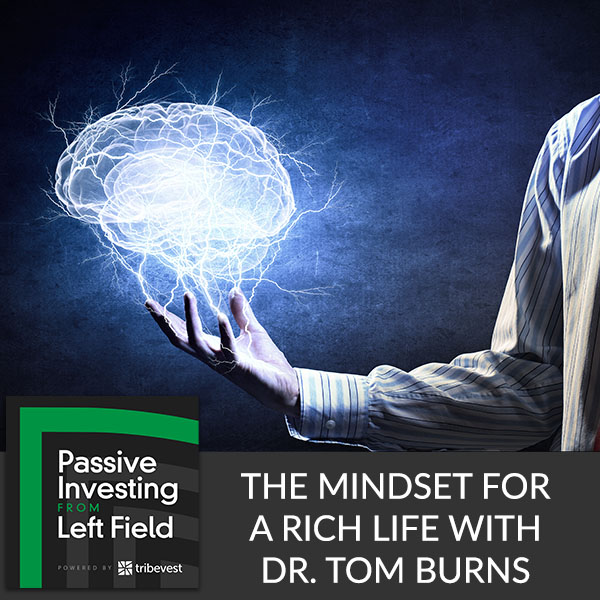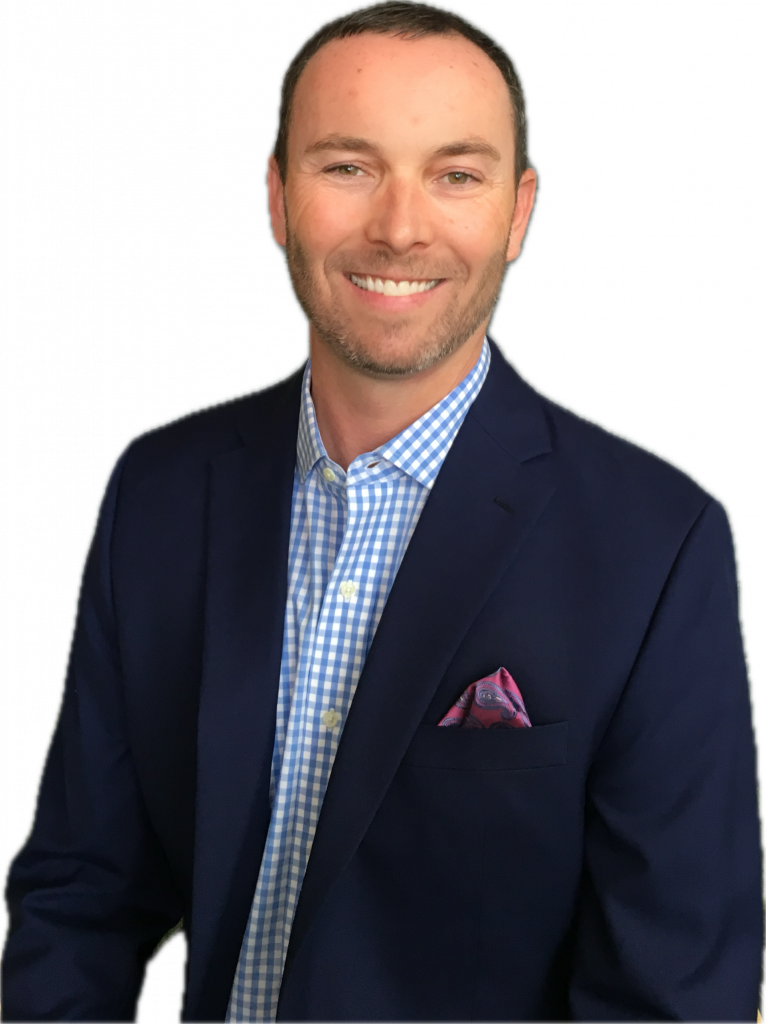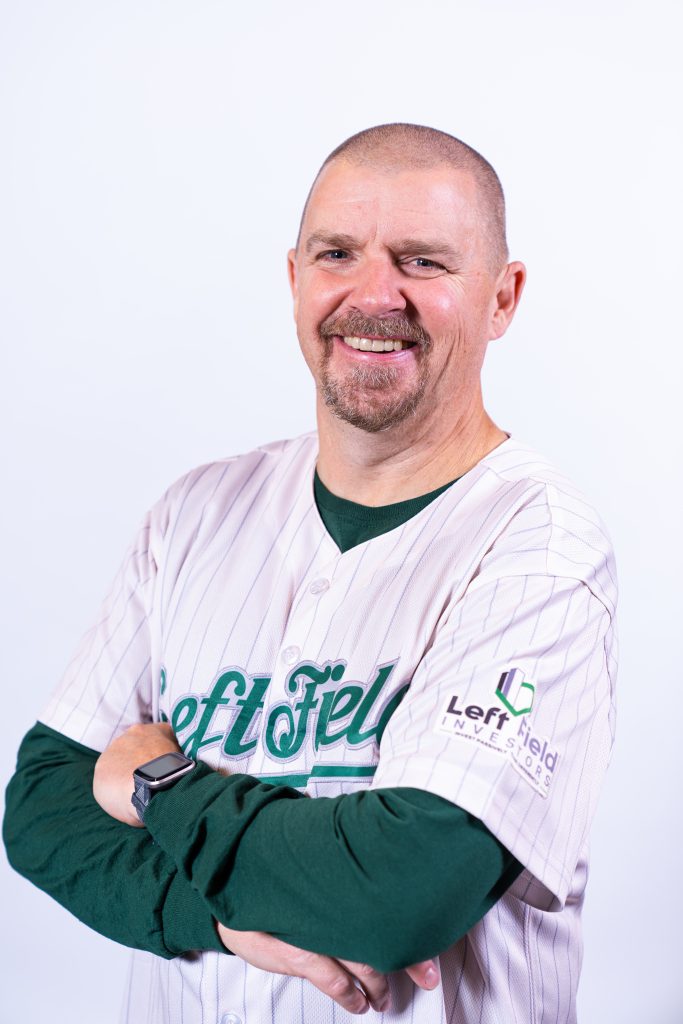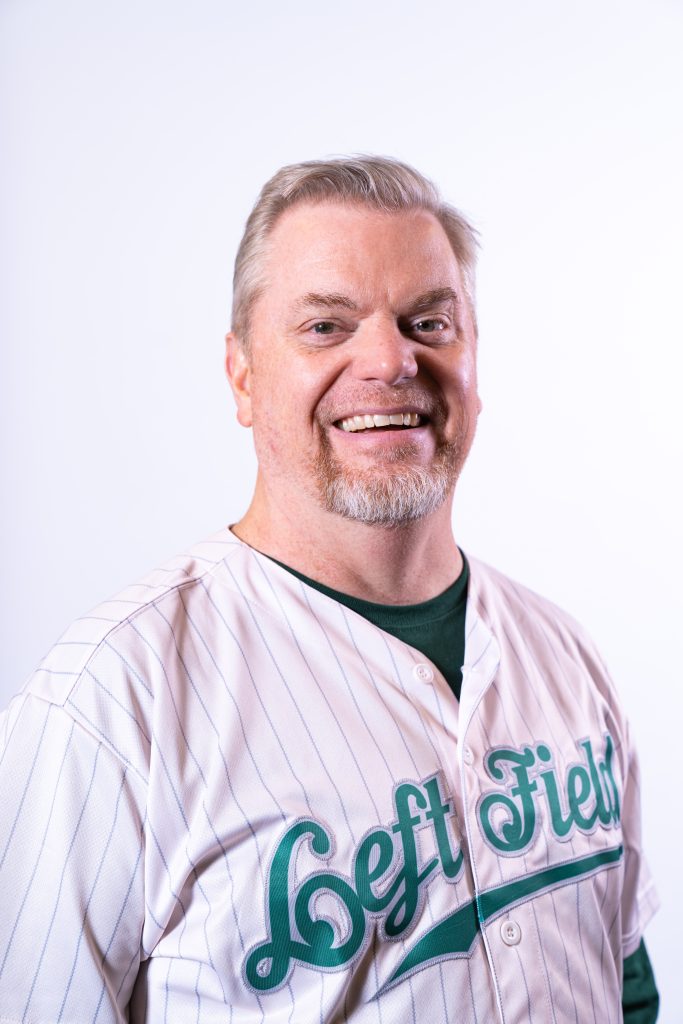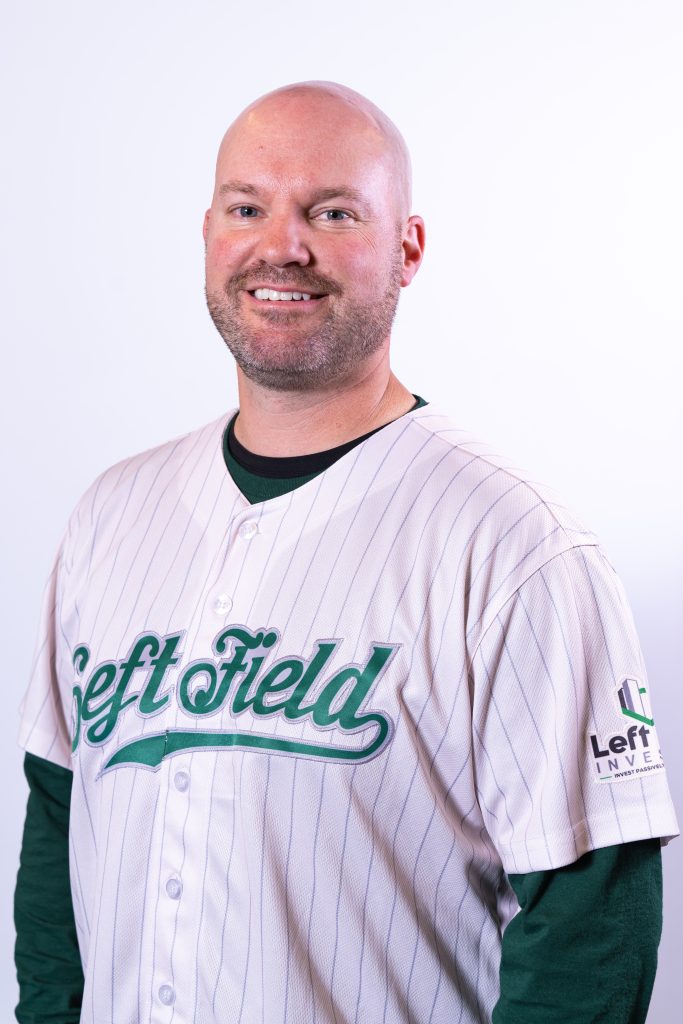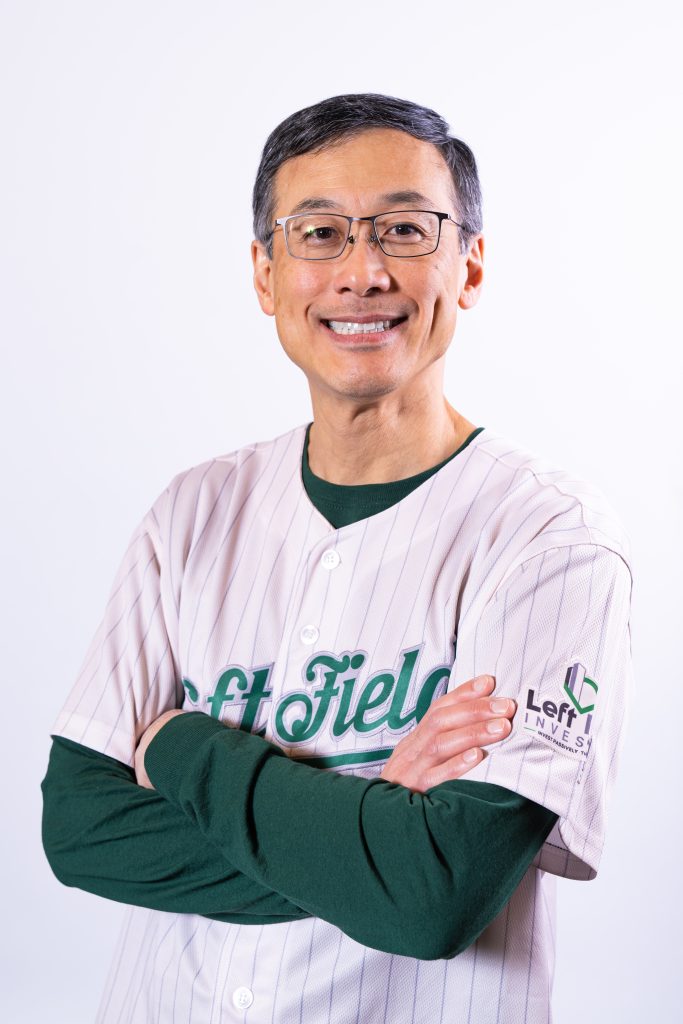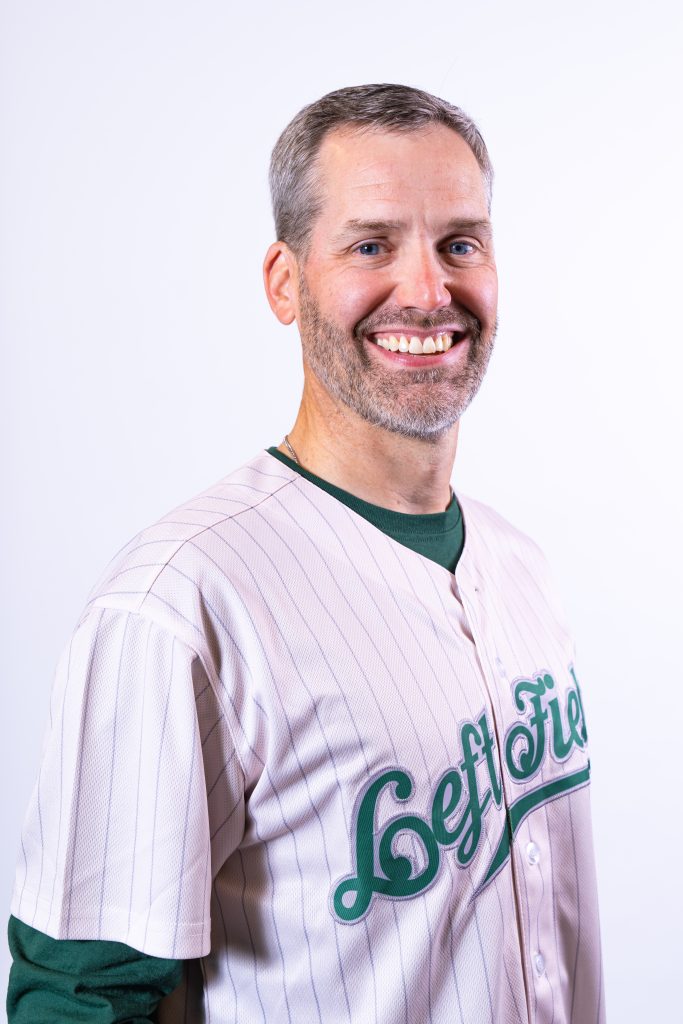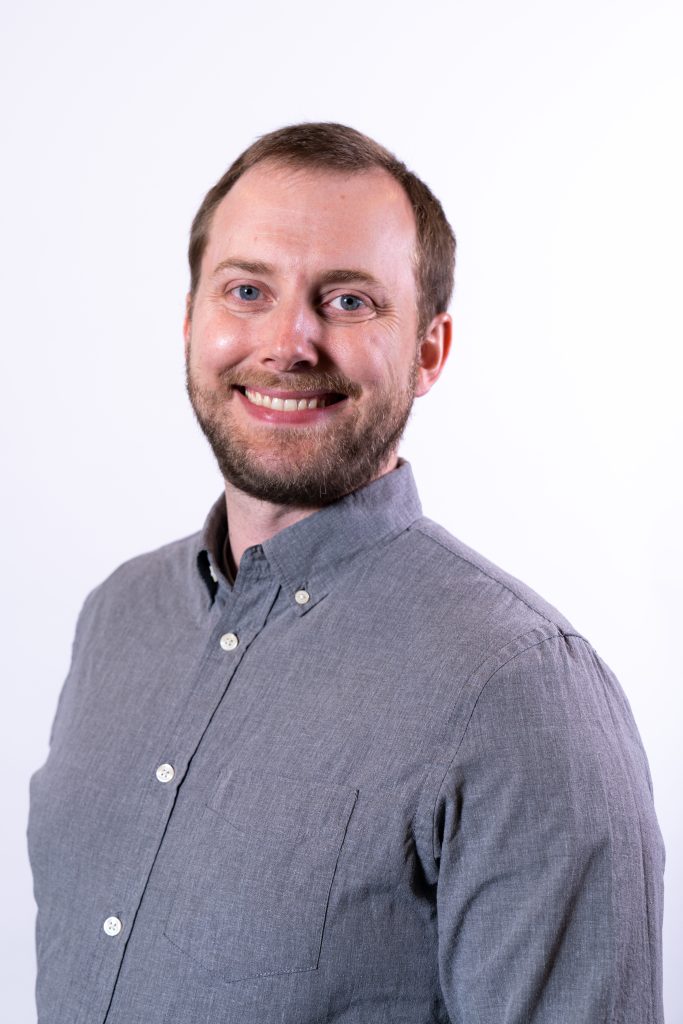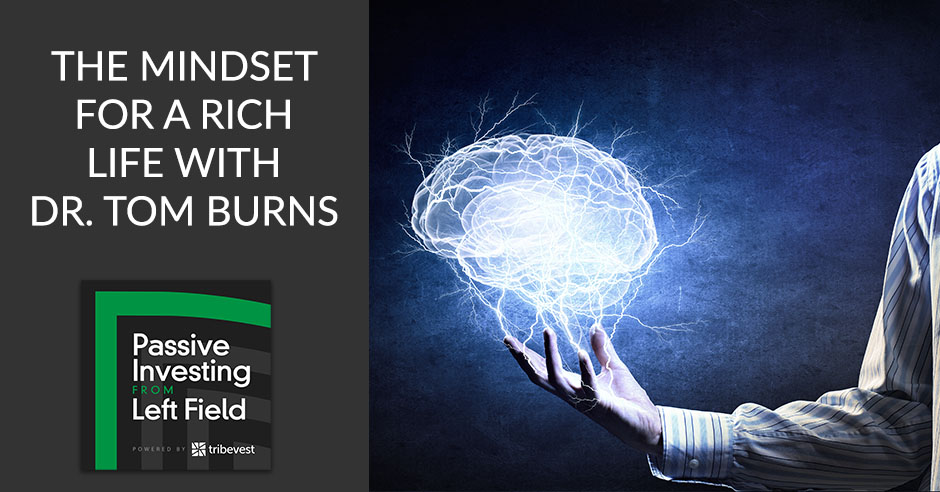
To gain financial freedom, you need to have a mindset for a rich life. Jim Pfeifer and Left Field Investors sit with Dr. Tom Burns, the author of the best-selling personal finance guide for people who want to live life to the fullest, Why Doctors Don’t Get Rich. Tom shares how he bought the first copy of Robert Kiyosaki’s legendary book, Rich Dad, Poor Dad. This game him a clear roadmap of how passive income will free you through cash flowing assets. Tom discusses how financial freedom allows you to buyback your time and construct the life you want. Listen to this episode to learn more about having a mindset for a rich life.
—
Listen to the podcast here
The Mindset For A Rich Life With Dr. Tom Burns
I’m pleased to have Tom Burns with us. He’s the Cofounder of Presario Ventures, a private real estate firm focused on investing in multifamily real estate. He’s also a physician and author of Why Doctors Don’t Get Rich. He has a mastermind called The Rich Life Accelerator. We’re pleased to have him. Tom, welcome to the show.
Thanks for having me.
The first thing we do here is we’d like to hear about your journey. I know you have a cool journey from being a doctor to now focusing on real estate. Can you take us back and tell us how you got here? What was the journey like?
I’ll give it to you. I’ll take you back farther than you want, but I’ll keep it short. I started life as a reasonably good guy at school and had good hand-eye coordination. I thought I was going to be an athlete. I got the tap on the shoulder that there are various levels of good and I wasn’t going to be making my money playing sports. I decided to become an orthopedic surgeon and a sports specialist, so I could hang out with the athletes I was just hanging around with. I went to med school and got into orthopedics. When you go into orthopedics, there’s a five-year period where other doctors train you on how to do that. I was following my path and started watching the docs ahead of me.
They’re 20 or 30 years older and that’s the people you’re supposed to be in 20 or 30 years. I watched them, and they were not necessarily as happy as I thought they were. They were making money, but they were in the hospital at 10:00, 11:00 at night when I had to be there, but I don’t think they had to be there. Some of them were on 2nd and 3rd marriages. They didn’t seem to be happy. They talked about being trapped and that happened enough times.
I thought to myself, “Maybe I’ll have something that’s not correlated to medicine. Something that brings in a little income.” I didn’t know what it was going to be, had no training, looked at stocks and went into administration. I found out I wasn’t employable and didn’t have any money or time for stocks or to run a business. I landed on real estate. Real estate moves slowly. You don’t have to be first in and time it perfectly. I can do it with partners or by myself, part-time or full-time.
I started reading everything I could and went into a seminar. This was before Al Gore invented the internet. I didn’t have any of that stuff to work with. I got information where I could. Eventually, I started and got back to my hometown of Austin, Texas and thought that I’d continue with this real estate thing. Once the timing was right, I bought something. I didn’t know anything. I worked the numbers on a napkin. The manager of the property helped me find an appraiser, inspectors and things like that.
[bctt tweet=”Money is not the only thing in life, but it’s the currency that buys your freedom. ” username=””]
I didn’t know how to get loans. I called some bankers I knew. It was all a fumble and took quite a while, but got it done. When it was all finished, based on all the numbers, I collected $100 or $200 a month without having to see patients or do surgery. That became an addiction and I enjoyed that. I thought, “If I could do this with one, maybe I could do it with two.” The second one was a little bit easier. The third one was much easier. It got so good at that particular market that, at one point, I bought one sight unseen because I knew I was going to make money on it. I got pretty good at that and bought a few things.
About along that time, I read a book by Kiyosaki called Rich Dad Poor Dad. He had that diagram, income statement, and balance sheet. On the bottom left side was the asset box. The asset box puts money up in the income section. I saw that graphically and I knew that it was what I was looking for in passive income. My business plan was to put anything I could in that box. I didn’t care if it was real estate or anything else. It’s what I did. I put in as much as I could. I reached the point where I felt like I was hitting the ceiling. I had a friend who was a developer and said, “I like what you do. Will you teach me?” He looked at me and said, “You’re a rich doctor. You don’t need to know this stuff.” I said, “I’d like to know anyway.”
I worked for him for about eighteen months for free. That morphed into a rather large project that we still own now. At one point, I was speaking on stage for Kiyosaki in 2001. He introduced me as being from Austin, Texas. Somebody in the audience came up and introduced themselves. They were from California moving to Austin. Long story short, after 6 or 7 years, that person became my partner, who’s my partner in my private equity real estate firm. You never know where life’s going to take you. I was somebody who didn’t have a network, money, business degree, experience or any of that.
I got in there and started asking people smarter than me how they got there. I had worked with partners who I feel were probably smarter than me as well and tried to work as a team player. The numbers got bigger. The zeros started adding on and now we do relatively large projects. I hope to continue to learn. I’m always a continuous learner and still learning. That’s what got us to now.
You did leave something out that I like to go back to the relationship with Kiyosaki. In your book, you describe how you were basically the one that bought the first book. I’d like to hear that story, but also that he wasn’t who he wasn’t as famous or well-known back then. You read a book from some random guy who he was at the time. How did that give you the confidence to know that real estate was the right way to go and you were on the right track?
I was at home alone. My wife and kids were up visiting grandparents up in Dallas. When they’re gone, I do errands. It was hot in my car and my truck was dirty. I went to get the truck washed. I went in to pay my bill at the car wash and there on the back shelf was a haphazard set of books with a handwritten sign that said, “Books for sale.” I could see it from a distance. It said “Rich” something. Let me see one of those. It said, “Rich Dad Poor Dad: What the Rich Teach Their Kids About Money That the Poor and Middle Class Do Not!” I thought, “That’s a pretty bold statement and anybody can make that.” I was reading books like that.
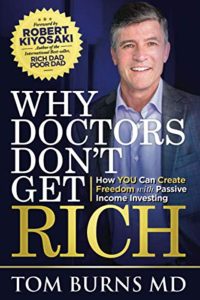
I was reading everything I could get my hands on at the time. I took it home, did the rest of my errands and threw it on my desk in my office. About 11:30 at night, I walked past and flipped the page to see what I was going to read one day. I like that first page and read a few more pages. Four hours later, I was done with the book. I didn’t have anybody to tell at 3:30 in the morning. I gave it to a friend and said, “This is the best business book I’ve ever read in my life.” We called the publisher to find out who this Kiyosaki guy was because nobody had ever heard of him.
When we called the publisher, Kiyosaki answered the phone because it was a self-published book. It turns out that there were the first two dozen books. He had sold zero books and sent him over to his buddy in Austin to sell books. The one I bought was the first one. I had subsequently gone back and bought all the rest of the books and given them out to friends. We went to visit Robert. He taught us how to play Cashflow. He gave me some more books, which I handed out to folks. We became friends. I introduced him to some other networks. Over time, he spoke to large groups. Oprah caught wind of it. He says, “Since he went on Oprah, he went from nobody to famous.” That was about 44 million books ago.
He’s so well-known now and you knew him at the beginning. Many people have that book as their entry point right to real estate. Why is that? What was so powerful about that book to you that you were handing it out to friends? You bought out the store and called the publisher. It must have had a huge impact on you.
It’s basically a mindset book. He’s not teaching you how to flip houses or buy apartments or a self-storage or start a business. It was how to think about money and how it will affect your life. Money is not the only thing in life, but it’s the currency that buys your freedom. I think all of us want to have control of our lives. With some money, you can buy back your time. With that time, you can control your environment to some degree. We all want that. When you read something like that, you realize that with the right mindset and some action attached to that, you can create whatever future you like or at least a better future than you have now.
That’s why it’s still timeless. The principles are not dated. They’re like physics, and the principles don’t change. I think that’s what I liked about it. It’s how I model my book was pretty much tried to be about principles. Although real-estate-based, it’s still talked about passive income and you asked about the confidence. Sometimes, it doesn’t take a huge deal or 100 deals to create some meaningful, passive income that can affect your life. You don’t have to replace your income. That’s a great goal. If you replace part of it, that’s like partial financial freedom and buy some of your time back.
We’re talking about financial freedom. I know everybody has a different definition, but what do you call financial freedom?
[bctt tweet=”It’s a liberating feeling when you know that you don’t necessarily have to worry about paying your bills and that gives you the creativity to think about what’s next.” username=””]
The one definition is to be able to do what you want, when you want, where you want, with who you want. That’s great. That’s a good definition. It takes that anxiety out of someone’s mind about what’s next or “Can I afford this? Will I be able to afford that? Can I take that time off?” People feel trapped when they have to put their time in to make money so that they can survive. That’s not a bad thing. That’s the way a lot of life works.
It’s a liberating feeling when you know that you don’t necessarily have to worry about paying your bills. That gives you the creativity to think about what’s next and the ability to be comfortable about where you are. Maybe do nothing else. It’s like said in the book, go learn how to play the guitar or Chinese. That’s great. If you want to grow your business further, it gives you the latitude, freedom, and time to sit back and do things with some patience. It’s the lack of anxiety and being financially free. It’s very liberating.
You talk a lot about that in your book. The question is where people go for this financial education. To be financially free, you also have to be financially educated. We don’t get that in schools. We get marketed to by Wall Street. Everyone thinks 401(k) and the stock market are the way to go. How do people get this education and understand, “Here’s how I get to that financial freedom?” Many people are saving money and deferring their life so they can get to retirement? How do you get around that for the regular person or even the rich doctors you talk about?
There are a lot of people that make a lot of money that aren’t very financially educated. Your education is your hedge against risk. It’s not that investment that’s risky. The amount of education you have will hedge that risk for you. You can get it anywhere. I got it before the internet. Find anybody and that person could be 30 years younger than you are, but if they’ve been somewhere that you’re not, ask them, “How’d you get there? What do I do?” There are books everywhere.
You can assimilate a lot of things from books. Podcasts are awesome. That’s what you’re educating right now. That’s a start. You can get so far with education. The best way to get educated is with some action because that’s when you learn the most. You’ve got your mind and skin in the game. If you want to lay out a plan, read some books, listen to some podcasts, go to seminars and hang around people that are doing this. That’s going to get you in touch with all the people you want to be. If you want to hedge it more in your first deal, do it small.
If you wish, some will say, “Why can’t I go big first?” There’s nothing wrong with that. It’s that if you go big, your losses can be big too. It depends on your risk tolerance and your education level. Partner with somebody that’s been there. Maybe you take a smaller piece, but you do a lot of work. The education you get is a huge return on investment. Over time, as you continue to do things, your education increases. Unfortunately, where do we learn our best lessons? It’s from our mistakes. You are trying to learn from somebody else’s mistakes. If you make them, try to make smaller mistakes.
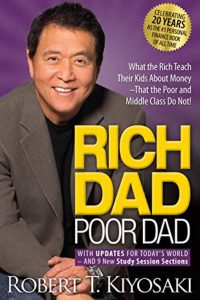
I keep circling back to the book because I read it and it was a good read. One of the things you talk about is knowing the rules of the game and educating yourself. In order to do that, you mentioned a couple of them. You said attend seminars, don’t fear mistakes, learn to sell and grow your network. You mentioned the seminars, especially the mistakes. People are so afraid to make mistakes, but can you talk about those four and how that helps you know the rules of the game and be effective?
You’re talking about some places like Wall Street. There are rules there too. They’re not necessarily in your favor. You want to know that people are out there to make money. They would be happy for you to make money, but if there’s a choice of you or them making money, they’re going to want to be the ones to make it. You need to know and watch yourself. I love books and podcasts. I like seminars because of the energy. There’s a difference between Zoom calls or books and podcasts versus the energy you get from being with somebody. You can feel what person they are and get a feel for their character. You need not always be right, but you get to know people better.
There are many small side discussions. You learn a lot from the stage, but you learn the most from the people you end up talking to. That’s where most of my ideas have come from and my relationships. It’s there that you’ll find a deal to invest in and investors for your deal. You’ll find ideas of other things that you might invest in or explore and get educated about. You’ll find out what you don’t know because there’s a lot. We don’t know what we don’t know. You and I both, there’s a lot that you and I don’t know we don’t know. Getting exposed broadens your scope and gives you a chance to know what other options are out there. The more options you have, the more chance you have to create the freedom that you desire.
Don’t forget I grew up as a doctor. We’re not allowed to make five incisions and see which one works. We’re supposed to know. We got to know where it is. Transparently, I had to beat that out of me because we don’t like mistakes. It was a journey for me. I’m obviously still working on it, but you got not to be afraid of them. There’s a book, The Obstacle is The Way, that basically says, “Not only are obstacles okay. You need to search for speed bumps, roadblocks and obstacles because that’s where you’re going to learn the most. That’s where you’re going to define your character.”
I truly have learned the most from my mistakes. Some of them have been big and some have been small. I try to learn from others’ mistakes, but they don’t hit home as much as when it stings and happens to you. Don’t be afraid. You’re going to make them. Life is full of mistakes. You got up to walk and fell down. You got up to walk and fell down again. Eventually, you started to walk. It’s the same thing with the bike, the same thing with investing in real estate. Don’t feel like you have to be perfect. That mindset will make it a lot easier to keep moving forward.
We don’t think we need to sell, but we all are selling. Selling is not trying to get somebody to buy something or get an investor. This is what I teach to people when I’m teaching about syndication. You’re not trying to get an investor. You’re basically telling a story you believe in and making them aware. You’re educating people. You want to know what somebody needs. If you’ve got what they need, great. If not, somebody else does. That’s selling. It’s solving a problem for someone else. That’s all sales is.
[bctt tweet=”If you make purpose your master and allow money to become your servant, it’ll work for you 24 hours a day. ” username=””]
We do that. If you go to a seminar, you can go in flip flops, shorts and a muscle shirt or maybe you throw out a sports coat and some nice pants and shoes because that first impression is a real thing. I tell the doctors, “You guys are saying, “We don’t have to sell. We’re doctors.” You walk into the room. Your appearance is immediately looked at in the first seven seconds. It makes an impression and affects the rest of your conversation. We’re all selling. Sales is not a dirty word. Sales is helping somebody else.
The more people you help, the more benefit comes back to you. The universe is pretty fair that way. It builds your network. Robert says your network is your net worth. I personally do believe that I probably wasn’t smart enough to do whatever I’ve done. I’ve had great partners and mentors, paid and unpaid. I’ve had so many people that have been generous to me and try to pay that back. The more people that you get to know, the more you find out what you don’t know. You find out what options and opportunities are out there and opportunities to go help somebody else.
If you go into networking with, “What can I get from this interaction,” you’re not going to do very well or I don’t think it’s the way to go. If you go and think, “What can I give here?” It’s going to come back to you tenfold. Go meet people. I got back from a four-trip thing that was three weeks long. It was for masterminds. It was a bit of a trek, but I met people that were fascinating. It probably changed the trajectory of what I’m going to do by stepping out and doing something that’s a little uncomfortable, being willing to meet somebody else and offering, “What I can do for you?” It always comes back in multiples.
One thing about the seminars, we had a discussion in our Infielder Forum about how to attend a seminar. Where do you go? What do you do? One of the people said, “Don’t go to all of the seminars, stand in the hallways and meet some people because you’re going to get as much or more out of the networking and connections that you make as you will someone standing on a stage and telling you something.” I thought that was pretty powerful. You had the same comment. Going back to your book, you need to make money as your servant and not your master. I think that is a great way to say that. Can you explain what you mean by that?
Money is awesome. It’s the best employee I’ve ever had. No salary, no benefits, don’t need to be off, etc. I love my employees. We’re all family. If money is your master, it means that you can’t do anything else until you acquire it. It’s basically guiding your life. That’s the way a lot of the world works. We’re all blessed to be sitting here talking together, but there are people that are out there struggling and trying to find the money. Money and survival are their masters. We have Maslow’s triangle, where we’ve got survival, comfort, freedom and self-actualization. That’s my triangle. I cut out one of Maslow’s deals.
If you think about the money, it doesn’t seem to work as well. I’ve had young people come to me and say, “I want to have X amount of net worth by this amount of time.” I’ll typically ask them why. Sometimes they say, “Because that’d be cool. I want so-and-so to know that I had that much money,” but you have to have a reason. If you make more of a purpose, your master and allow money to become your servant, it’ll work for you 24 hours a day. It’ll make babies for you. Those babies will go to work. It’s a metaphor for passive income. Once you get it going, it can go forever if you set it upright. It’s a wonderful feeling to check the mailbox or, these days, check your account because everything’s direct deposit.

It is a wonderful feeling. You’re talking about net worth and have said cashflow is more important than net worth. Why is cashflow more important than your net worth?
I try to balance both sides. It’s great to have both. They often will tend to go with each other, but if you’d have a net worth of $10 million and a cashflow of $10,000 a year, it’s going to be hard to buy groceries. Those are extremes, for sure. If given a choice to have one, give Tom Burns a choice to have one, I’ll take the cashflow because with that cashflow, if it matches my expenses, I’m free to do what I want.
What I want could be to search for another business or investment or whatever to increase that cashflow or net worth. If I have a big net worth, but I don’t have enough cashflow to cover my expenses, money is still a bit my master. I’m having to spend my time with that master rather than my life where I’d rather be spending it. They do tend to go with each other. The point was if you’re starting out, don’t concern so much with net worth. Think about that passive income. That’s going to free you. Once you’re free, the sky’s the limit.
The velocity of money, maybe making $1 work in two different ways or recycling your money. Can you talk a little bit about the velocity of money to help in your cashflow?
You want to try to keep it moving and debt is one of the ways to do that. At least for now, that’s where we’ve been since about the 1950s. We discovered debt. Debt is wealth right now, the proper debt, good debt. It’s debt that somebody else is paying, such as renters and tenants and things like that. It’s good to have some cash or cash equivalent for emergencies or opportunities. You want to try to keep that cash at least keeping up with inflation. It’s pretty high now. The point was rather than set it in a bank and let it lose 7% to 10% of its value these days. Try to put it into something that’s reasonably liquid that you can access if you need it and still have those opportunities.
You’re keeping up with inflation that keeps the velocity going. There are ways to do that. There are debt funds and certain short-term T-bills and things like that you can use. Sitting on cash while some of the radio pundits will say, “Have that backstop,” is not bad advice, just not the best velocity. If you own a home, the best velocity of your money is to have a nice 30-year low-interest rate loan. You can use the rest of that money for your investments to create your passive income. As I say that, the other side of the mouth will tell you that I paid my house off. Sometimes emotions will trump what’s a better velocity that might make Tom Burns feel better or some other people feel better, but you do want to try to keep it moving. If money sits, it gets stagnant and a little smelly.
[bctt tweet=”You want to partner with someone who takes care of their investors. ” username=””]
I think that is super important. What you said is sometimes you make financial decisions that are not the smartest financial decision, but it helps you sleep at night. For somebody, it might be paying off your house. For other people, it could be something completely different. It’s better if you don’t pay off your house because you can use that money and invest it somewhere to make more money. If paying off your house makes you comfortable and lets you sleep at night, that’s okay. That’s why everybody’s financial situation has to be different. You have to do what’s comfortable for you. I liked the way you said that.
In 2008, you had some challenges. Everybody did. What did that teach you? How do you apply that now when it seems like everything has been at prices for a few years that we thought it couldn’t keep going up? We’re done with the all-asset bubble, whatever you want to call it. Assets are expensive, but if you kept your money on the sidelines in the last few years, you would have missed out. Does 2008 help you figure out what to do in 2022?
It helped me, but it didn’t give me the answers. The story in 2008, I could see something coming. I still had some stocks back then. My only good stock move in my entire career was I pulled my money out before the stock market went down. I gloated the whole time. It went down to 6,700. I gloated as it went up to 33,000 and never put money back in. I looked at my holdings and could tell what was probably going to go flat. I was certain that one thing was going to be okay. Sure enough, that one thing was not okay. It’s something related but not directly related to the recession. I pulled that out. I ended up having to lend another entity $20,000 a month for the next eight years.
That was fun. The good news is it never got paid back, but that’s another story. Everything went flat. I didn’t lose any of the real estates. That’s the beauty of the real estate. It held its head but cashflowed low. I had some business dealings where we had temporary debt out there, high debt, hard money debt. They were 3 or 4-month projects. Those 3 or 4-month projects went to long-term. There I was looking at 18% interest payments on those. I had to go to a successive number of banks and get a bunch of lines of credit at about 4% or 5%, probably at the time. I took out arbitrage, the 18% and it took me several years to pay off all those lines of credit.
In essence, the result was I missed the first couple of years of the real estate sale after the recession. It’s the way it goes. I paid full their principal with interest, but they’re all still long-term investors, so there’s always benefit there. As I look back at that, I’m looking at what’s coming. People ask me, “When do you think the recession is going to happen?” I tell them confidently 2017 because that’s what I thought things were going to happen. It shows that I don’t have a very good crystal ball.
My question to myself is, I thought I had everything pretty much figured out in the last one. I still missed something. My question to myself now is, “What am I going to miss this time?” I’m trying to get up to 30,000 feet and look. There’s a quote from somebody that says, “Things that have never happened before happen all the time.” I don’t know what’s going to happen. Whenever this next turn down is, it’s going to be something that probably none of us were expecting. It’s helped me to get some perspective trying to dig the foxhole deep enough to survive, but also enough perspective to know that you’ll probably be going to miss something. You don’t want to stick your neck out too far when you’re in this environment.

What am I going to miss this time? If that’s how you’re looking at it, I think that balances you. You don’t want to keep too much cash in the bank, but you don’t want to invest in an asset that’s at its peak. There has to be a balance there. If you’re always looking for the thing that you might’ve missed, I think that’s a good way to look at things. You talked about, in your book, finding your niche. Everyone’s got to find their niche. How does a person think of that? How do I find my niche? How do I start exploration? I think your niche will almost find you, but how do you start the process of exploring to get there?
You’ve got to answer the question. I had a coaching call with one of my guys. It was this question. He was looking for his niche. He was in real estate. He said, “I’ve got to pick self-storage or multifamily.” I turned it around and said, “One, I would keep your mind open. I’ll roll in a bunch of things here. I would keep up with the networking. The more people you meet, the more you’ll find whatever their niches are out there.” What I essentially ended up talking to him about was what you said. There are times when your niche will find you and it might not be what you expect, but you’ll connect with the right person.
That’ll give you the excitement and the want to go learn about that niche. It’ll give you some purpose. If you’re searching for something, real estate is fun, but it’s not near as exciting as going on vacation or hanging out with cool people. It’s a great vehicle, but I’m not in love with any of my buildings. I’m in love with the next trip that I’m taking with my family. The niche itself is certainly important. Once it finds you or you find the one you match with, go deep because it’s helpful.
When things turn bad, people want to look to experts, people who have got some deep experience with a certain niche. It gives you that vision where you can see farther down the road if you understand what’s going on. That helps, especially in times like now when you can at least try to look farther down the road. The short answer would be to continue to network and be open.
You have to keep expanding your network, talking to smarter people than you, and keep out there, and you’ll find it. In our group, Left Field Investors and the infield, we talk a lot. The main thing people join our group and talk about is how you find a good sponsor, but we’ve never asked the question that you talk about in your book, which is what makes a good sponsor. We have all kinds of ways to find them, but how do we know we’ve found a good sponsor? What makes someone a good sponsor?
You’ll never know 100% for sure until you go through an investment with them. The simplest way is probably what you’ve talked about in your group is that the easiest way is if you and I are good friends, we’ve been friends for a long time. You say, “I’ve got this friend, Joe. He’s got a good deal. He’s a solid guy. He’s been doing this for a bunch of years. I’ve invested with him.” That’s one way. Talk to your friends who have had successful investments with successful sponsors and have got nice long track records.
[bctt tweet=”Wealth creation is a people business, a relationship business.” username=””]
Not every sponsor can have a long track record because everybody has the first day. If you’re looking for that, find somebody that you know, it’s the easiest way. It’s going to come from your network. Other ways, you’ll meet them. You can watch and see what they do. I tend to like to talk to people if it’s going to be a sponsor I’m going to invest with. Although I sponsor a lot of investments myself, that’s most of what I do. I still invest with others, but it’s usually if it’s somebody you introduced me to or somebody I’ve known for five years or something like that.
What makes them good? The main thing is the first thing on their mind is how can I make my investors’ money? How do I take care of my investors? I saw a deal where the numbers were great. They were fantastic. It was split up to where once profits started coming in. It was 20% to the investor and 80% of the sponsor, where the sponsor put in no money. I didn’t like the structure of that deal. You want somebody who would like to see somebody that takes care of their investors first. Maybe there’s a preferred return, they get paid first and maybe there’s a split after.
The step beyond that is to give the investor back all their money. They’re giving you all the money and you could still have your money in as part of the limited partner but give the investors back all their money. Once you’re playing with house money, you can split it up, whatever percentage of fraction you wish. If you take care of the investors first, it’s number one the right thing to do. Number two, they might be an investor again and again. We have investors who have been with us for twenty years.
Do you know how they do it? We say, “We got a deal,” and they say, “I’m in.” They don’t even want to see the paperwork because they know what we do. Make sure they’re thinking about the investors. Look at the splits, the waterfall, which is the thing that’s in the PPN. It’ll show the waterfall. It’ll say 100% of the money first goes to pay the preferred return. Next, 100% of the money goes to pay back investor capital.
It starts to split. That’s the main thing. The track record helps. If they don’t have a track record, I will make sure you know them well, their character, someone who knows them well and have to do a bit more due diligence on the asset and the investment itself. Hopefully, you’ve got the knowledge base to be able to do that. Sometimes when it’s the first time, that sometimes translates into a higher split for the investor because they’re taking a risk on a new person.
I keep talking track record is so huge. Looking back at previous returns, past performance certainly doesn’t guarantee a future. That’s the main thing. You want to know that the guy’s not named Bernie Madoff. You want to know that your risk is not the sponsor. It’s market risk. You can look at their due diligence. You can do your own. Most of the time, if you trust a sponsor, you’re going to look at the due diligence and trust it because who do we invest with? There are a lot of great deals out there. We invest with people. I didn’t answer the question fully, but that’s the two main things.

You don’t want the risk to be the sponsor. That says it all right. I couldn’t say better myself that it was perfect. You don’t want the risk to be the sponsor. We all want to have that sponsor that we trust so much that we don’t have to look at the deal. You’re not going to get there on the first one, but on your 5th, 6th, 10th deal, you shouldn’t have to look at it. You should say, “I’m in.” I love that.
I have a friend who does good stuff. He sent me a text that said, “Put $100,000 into my deal. It’ll be good for you.” I texted back, “Okay.” That was it. That was the sales process because I trusted him so much. It’s like, “You want me to be in. There’s a reason for that. “That happens and it’s a great feeling and marriage.
That brings it back to what we were talking about at the beginning of building your network, attending seminars and meeting people. It all comes around and ends up in a relationship like that where you can send someone $100,000 on a text because you know they’re putting you in a good deal. That is where we all want to get to eventually.
It’s all coming back to networking. That’s where you find the sponsors, the niches, the deals and everything. It’s true. It’s people. Wealth creation/life creation is not 0s and 1s. It’s a people and relationship business. That’s the fun part of it.
This has been great. I do want to ask you one question that has nothing to do with real estate before we get to my final question. I love to ski. I want to know how an orthopedic surgeon in Texas gets to be the US ski team doctor.
I think I have more ski coaches than anybody in the city. I was an orthopedic surgeon and a sports medicine specialist. I did my training in Vail, Colorado, with a guy named Dick Steadman, who is the man. He’s the guy who set up ski medicine. I spend my year there. I got attached to the ski team. In 1991, I was the doctor for the Olympic Training Center at Lake Placid. It was there that the freestyle guys were there. If you’ve seen them, they jump up and do flips. I spent enough time with them. I trained with him and qualified to jump. I was young and athletic at the time. I’ve been with those guys for many years now and travel all over the world. Airplanes will get you anywhere. I don’t need to be on skis in Austin, but it’s a real honor. It’s a great way to see the world.
That’s phenomenal. I had to ask that question. The last question I always ask is, I know you read a lot of books, but hopefully, you listened to some podcasts. What is a great podcast that you like to listen to?
I’m going to give you two just because. One’s a daily thing. It’s Darren Hardy. I listened to DarrenDaily. It’s 3 to 5 minutes. There’s always something good there. You can pick up good ideas, and it’s a nice way to start the day. If I want a nice long, thoughtful conversation, I’ll listen to Ed Mylett.
If readers want to get in touch with you or learn more about Rich Life and all the things you do, what’s the best way they can do that?
You can email me at Tom@RichDoctor.com. We haven’t switched things over yet. If they want some stuff that might help them, you can go to Rich.Life/toolkit. There is some stuff there. That’s all free. It’s things that have helped me over many years. That’ll connect you with me as well.
I can’t recommend your book enough, Why Doctors Don’t Get Rich. All you need to do is whatever your profession is, substitute that for doctors and everything will apply. It was a fantastic read. I appreciate you being on the show. I hope we can connect again soon.
Thanks a ton.
—
I enjoyed that episode and his book. I thought it was a great read. You don’t have to be a doctor to get the lessons out of it. That’s why I kept referencing that book because I got so many great nuggets out of it. Talking to Tom, I got a ton of one-liners that had an impact on me. Money is the currency that buys freedom. That’s true. Money isn’t everything. If you can build wealth, you can give yourself freedom and live the life you want to live. I thought that was powerful.
Education is a hedge against risk. It doesn’t have to be a college education, a Master’s degree or a medical degree. It can be going to a networking event and learning something. It’s a hedge against risk. The more you know, the more secure you’re going to be in your investments or in your life, generally. Mistakes, we all make them. Mistakes are okay unless you’re a surgeon. You don’t want to cut five times before getting the right spot.
The pivot Tom had to make in real estate and his investing was it’s okay to make mistakes. That’s how you learn. Obviously, as a surgeon, you don’t want to make those mistakes, but the best lessons I’ve had when you’re investing are from the losses that I’ve had. The money lost is a lesson learned. I liked how he said that.
Talking about selling, everyone has to sell, but you don’t have to act like a salesman or a saleswoman. Solve a problem for somebody that’s selling. Sell them that. You’re going to solve a problem. Everything changes when you approach it like that. You’re not selling them something. You’re solving a problem for them. Money is the best employees have ever had. You don’t have to pay benefits money. What he’s talking about is having your money work for you. While you’re sleeping, the money’s coming in. Mailbox money, as he said, doesn’t come in the mailbox anymore. Making your money work for you and money will be the best employee you’ve ever had.
Talking about 2022 compared to 2008, he’s thinking, “What am I going to miss this time? What am I not looking at?” That opens your mind and allows you to explore other things because asset prices have been going up. We all know at some point it’s going to stop. Does that mean it’s going to crash, or she’s going to stop going up so fast or plateau? We don’t know, but if you’re looking for things that you’re missing, you might find them and be able to prepare and ready for whatever happens. That is great advice.
Finally, the sponsor should not be the risk. When you’re looking for a sponsor to invest in or at a deal, part of the risk that you’re analyzing should not be the sponsor. That should be no risk. You should vet the sponsor and use your network or community. We are always talking about the power of community and how that can help you vet, screen and analyze sponsors. When you’re looking at a deal, make sure that none of the risks lies on the sponsor. You have covered that and you’re comfortable with them as much as you can be.
I had a great time talking with Tom. I think he’s got a bunch of pearls of wisdom and been through it. He is willing to share, teach and help us all. I appreciate him being on the show. I’m hoping he’s going to start his own show. That would be great to listen to him on a regular basis. We’ll keep track of him. That is all for this time. We’ll see you next time.
Important Links
- Presario Ventures
- Why Doctors Don’t Get Rich
- Rich Dad Poor Dad
- The Obstacle is The Way
- DarrenDaily
- Ed Mylett
- Tom@RichDoctor.com
- Rich.Life/toolkit
About Tom Burns
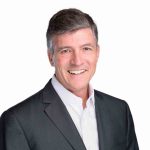 Tom Burns is an entrepreneur and a retired orthopedic surgeon. He is a physician for the United States Ski Team and travels worldwide with them. He is a principal at Presario Ventures, a private equity real estate company in Austin, TX. He has over 25 years of real estate experience with multiple asset types, and he has acquired and developed $500 million of real estate locally and internationally
Tom Burns is an entrepreneur and a retired orthopedic surgeon. He is a physician for the United States Ski Team and travels worldwide with them. He is a principal at Presario Ventures, a private equity real estate company in Austin, TX. He has over 25 years of real estate experience with multiple asset types, and he has acquired and developed $500 million of real estate locally and internationally
Dr. Burns is the author of Why Doctors Don’t Get Rich, a best-selling personal finance guide for people who want to live life to the fullest. He is a sought-after speaker and mentor and is frequently featured in nationally circulated print articles and popular success and real estate-oriented podcasts. Tom has been financially independent for a decade. His mission is to help people create financial independence so they can enjoy life and all the joy that comes with it.
Our sponsor, Tribevest provides the easiest way to form, fund, and manage your Investor Tribe with people you know, like, and trust. Tribevest is the Investor Tribe management platform of choice for Jim Pfeifer and the Left Field Investors’ Community.
Tribevest is a strategic partner and sponsor of Passive Investing from Left Field.

